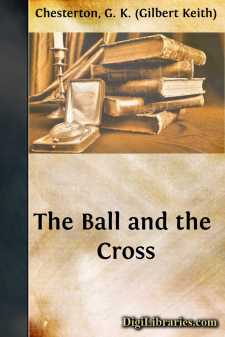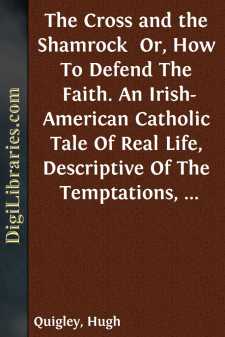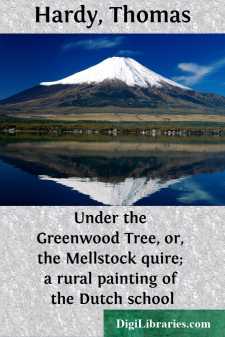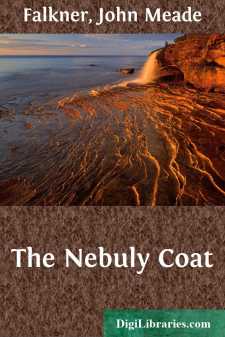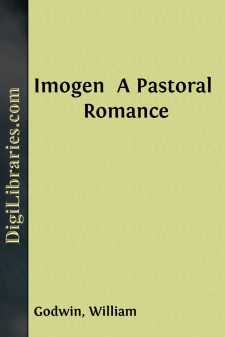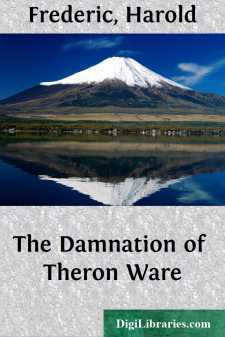Fiction
- Action & Adventure 180
- Biographical 15
- Christian 59
- Classics 6965
- Coming of Age 5
- Contemporary Women 3
- Erotica 8
- Espionage/Intrigue 12
- Fairy Tales, Folklore & Mythology 236
- Family Life 169
- Fantasy 117
- Gay 1
- General 596
- Ghost 32
- Historical 808
- Horror 43
- Humorous 159
- Jewish 25
- Legal 4
- Medical 22
- Mystery & Detective 315
- Political 49
- Psychological 41
- Religious
- Romance 158
- Sagas 11
- Science Fiction 730
- Sea Stories 113
- Short Stories (single author) 537
- Sports 10
- Suspense 1
- Technological 8
- Thrillers 2
- Urban Life 31
- Visionary & Metaphysical 1
- War & Military 173
- Westerns 199
Religious Books
Sort by:
I. A DISCUSSION SOMEWHAT IN THE AIR The flying ship of Professor Lucifer sang through the skies like a silver arrow; the bleak white steel of it, gleaming in the bleak blue emptiness of the evening. That it was far above the earth was no expression for it; to the two men in it, it seemed to be far above the stars. The professor had himself invented the flying machine, and had also invented nearly...
more...
by:
Hugh Quigley
A DEATH-BED SCENE. A cold evening in the month of January, a drizzling rain storm blowing from the south-west, a cheerless sky, a dull, threatening atmosphere, together with almost impassable roads,—these are the chilling and uninviting circumstances with which, if we pay regard to truth, we must introduce our narrative to our readers. It is usual, with writers of fiction and romance, to preface...
more...
CHAPTER I "Woe on you, mothers of nothing! May the scourge of Allah flay you as you go!" The mother of Iskender held the doorway of her little house in a posture of spitting defiance. Rancour, deep-rooted and boundless, ranged in her guttural snarl. Her black eyes burned to kill, their thick brows quite united by the energy of her frown as she gazed across a sand-dell, chary of vegetation but...
more...
by:
Mor Jokai
CHAPTER I. IN THE MONASTERY. There were six of them besides the Prior and Abbot. The seventh was away in the village, collecting the gifts of charity. "Benedicite," began the Prior. "Here is a message from our most gracious patroness." With that he laid upon the table a sealed letter in Latin, which the others passed from hand to hand. All understood it, but it was evident that not one...
more...
by:
Thomas Hardy
PREFACE This story of the Mellstock Quire and its old established west-gallery musicians, with some supplementary descriptions of similar officials in Two on a Tower, A Few Crusted Characters, and other places, is intended to be a fairly true picture, at first hand, of the personages, ways, and customs which were common among such orchestral bodies in the villages of fifty or sixty years ago. One is...
more...
Prologue. Sir George Farquhar, Baronet, builder of railway-stations, and institutes, and churches, author, antiquarian, and senior partner of Farquhar and Farquhar, leant back in his office chair and turned it sideways to give more point to his remarks. Before him stood an understudy, whom he was sending to superintend the restoration work at Cullerne Minster. “Well, good-bye, Westray; keep your eyes...
more...
IA la sueur de ton visaigeTu gagnerois ta pauvre vie,Après long travail et usaige,Voicy lamortqui te convie. The quatrain in old French written below one of Holbein's pictures is profoundly sad in its simplicity. The engraving represents a ploughman driving his plough through a field. A vast expanse of country stretches away in the distance, with some poor cabins here and there; the sun is...
more...
by:
William Godwin
The following performance, as the title imports, was originally composed in the Welch language. Its style is elegant and pure. And if the translator has not, as many of his brethren have done, suffered the spirit of the original totally to evaporate, he apprehends it will be found to contain much novelty of conception, much classical taste, and great spirit and beauty in the execution. It appears under...
more...
THE AUTHOR TO THE READER A la sueur de ton visaige,Tu gagnerais ta pauvre vie.Après long travail et usaige,Voicy la mort qui te convie.* THIS quaint old French verse, written under one of Holbein's pictures, is profoundly melancholy. The engraving represents a laborer driving his plow through the middle of a field. Beyond him stretches a vast horizon, dotted with wretched huts; the sun is sinking...
more...
by:
Harold Frederic
CHAPTER I No such throng had ever before been seen in the building during all its eight years of existence. People were wedged together most uncomfortably upon the seats; they stood packed in the aisles and overflowed the galleries; at the back, in the shadows underneath these galleries, they formed broad, dense masses about the doors, through which it would be hopeless to attempt a passage. The light,...
more...


